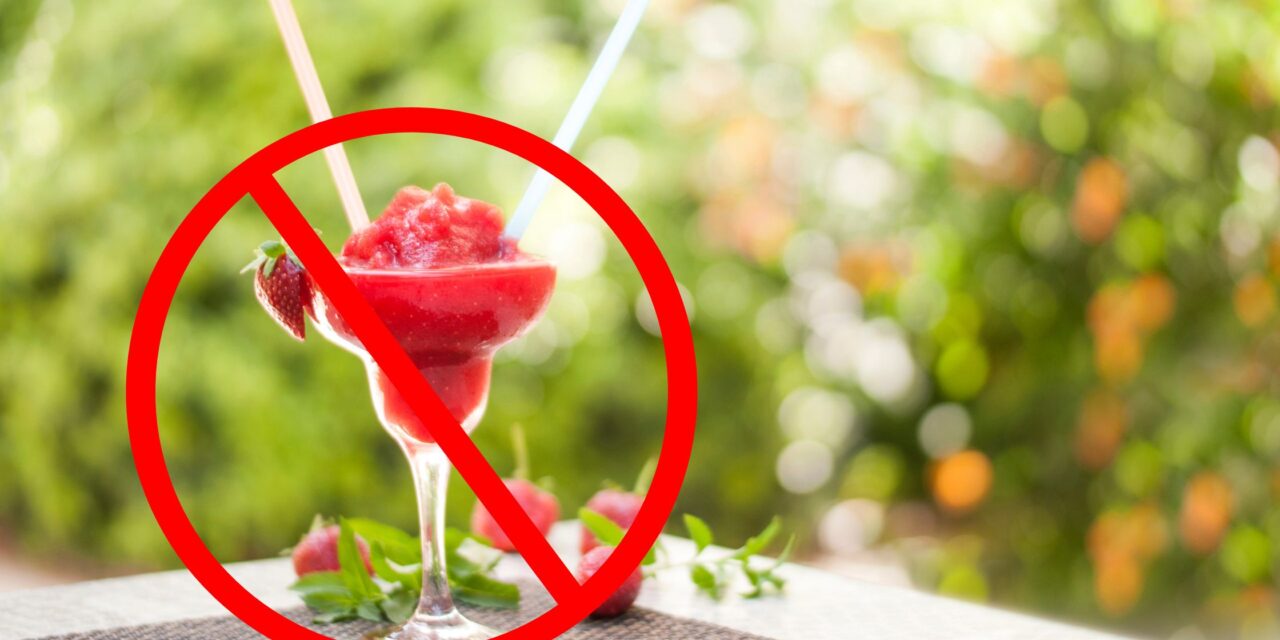Sweet, sugary, or fruity alcoholic drinks are popular in bars and social gatherings. But can they also make you drink more? Sweet alcoholic beverages seem harmless at first, you don’t taste the bitter spirit in there, but can that be a dangerous thing? Let’s explore these popular fruity beverages as we try to assess how safe (or not) they might be for you.
What Are Fruity Or Sweet Alcoholic Drinks?
Fruity or sweet alcoholic drinks are alcoholic drinks mixed with sugary juices and other soft drinks. They’re a type of cocktail high in juices and syrups. These ready-to-drink cocktails can very much disguise the strength of spirits such as bourbon, tequila, whiskey, and vodka.
Sugary alcoholic drinks are easy to consume. This makes them utterly dangerous for several reasons: you’re taking more sugar than is healthy, and your perception of how much alcohol you consume becomes distorted. As a result, you often end up consuming dangerous amounts of alcohol.
Dangers Of Sugary Or Fruity Alcoholic Drinks
Excessive added sugar intake is associated with higher blood pressure, inflammation, weight gain, diabetes, and fatty liver disease. Alcohol already affects your blood sugar levels when mixed in with juices and syrups, the sugar contents exponentially increase.
Yo-yo effect on blood glucose levels.
Sugary drinks often cause a yo-yo effect on your blood sugar levels. Initially, it raises them, but once your body starts processing the alcohol, your blood sugar levels drop dramatically. This cycle keeps your liver from working overtime, which can cause your blood sugar levels to drop significantly (hypoglycemia). This is why you often experience shakiness or feel weak after a night of drinking.
It can make you drink more.
Furthermore, sugar can diminish the amount of alcohol that reaches your bloodstream, reducing your breath alcohol concentration. In theory, that’s “good” because it blunts your alcohol buzz. Still, it doesn’t save you from the effects of excessive alcohol or sugar consumption. However, this can cause a more dangerous impact: you drink more.
Because it takes your body longer to feel the effects of alcohol, you might consume more alcohol than you intended. For example, a pina colada has 13% alcohol by volume (ABV) – close to drinking two beers! Oh, the pina colada also contains 28 grams of added sugars, about 7 teaspoons of sugar!
Can You Get A “Sugar Hangover”? Do Sweet Alcoholics Make Hangovers Worse?
While not exactly a hangover, excessive sugar intake leads to side effects that can feel similar. Some of these immediate effects include:
- Low energy levels
- Depressed mood
- Bloating and gasses in people that suffer from certain digestive conditions, such as irritable bowel syndrome
- Brain fog or reduced cognitive abilities
- Headaches
While sugar won’t worsen your hangovers, over-drinking because it’s easier to drink sweet alcoholic beverages will. Eventually, what makes your hangover worse is the amount of alcohol you drink.
How To Avoid A Sugar And Alcohol Hangover?
Consider these recommendations if you plan to go out for a night of sweet cocktails:
- Remember that sugar can numb your buzz, leading to an unexpectedly high amount of sugary/fruity drinks
- Drink water in between alcoholic beverages. It’ll hydrate you and prevent some of the hangover symptoms
- Make sure you eat enough before drinking
- If you go out to drink, try not to sleep too late. Getting a good night’s rest reduces hangover effects.
- Avoid having more than two drinks per hour
- Have a big breakfast the morning after
And remember, drink responsibly. If you’re going out with friends, a few drinks are okay. However, you always want to avoid binge or excessive drinking, as these practices can have severe consequences.
The Bottom Line
Sugar and alcohol often go hand in hand in bars and social gatherings. Sugary or fruity alcoholic mixes do not necessarily lead to a worse hangover. Still, they may make you drink more than you intend to.
Be very careful when drinking. Always drink a glass of water between alcoholic drinks, which dilutes alcohol and sugar. Avoid episodes of binge drinking or excessive drinking as much as possible. And, beware of the signs of alcohol abuse. If you or someone you know is dealing with a drinking problem, please seek help. Talk to a therapist or addiction specialist to learn more about how you can start your journey to recovery.

